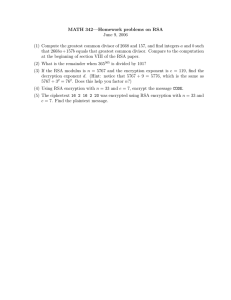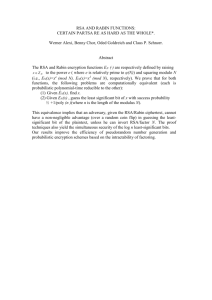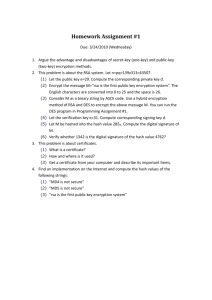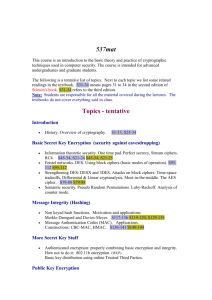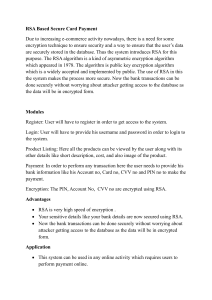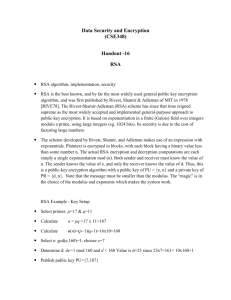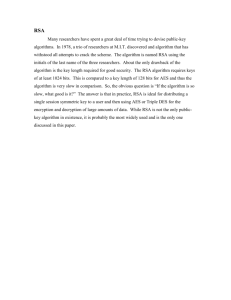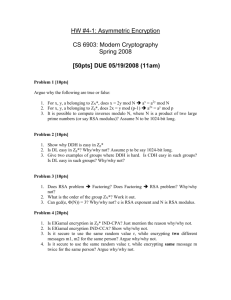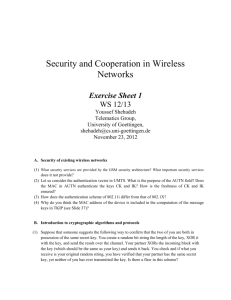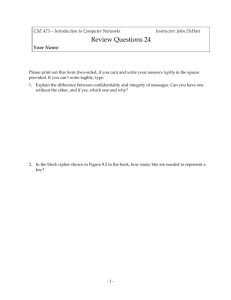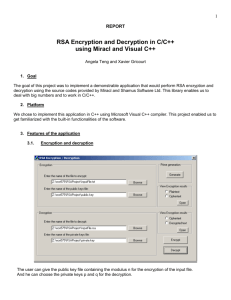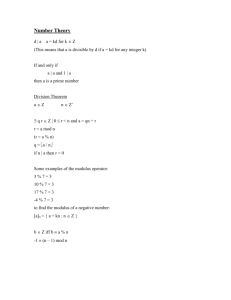Introduction to the Generalized Principle of Rivest-Shamir
advertisement
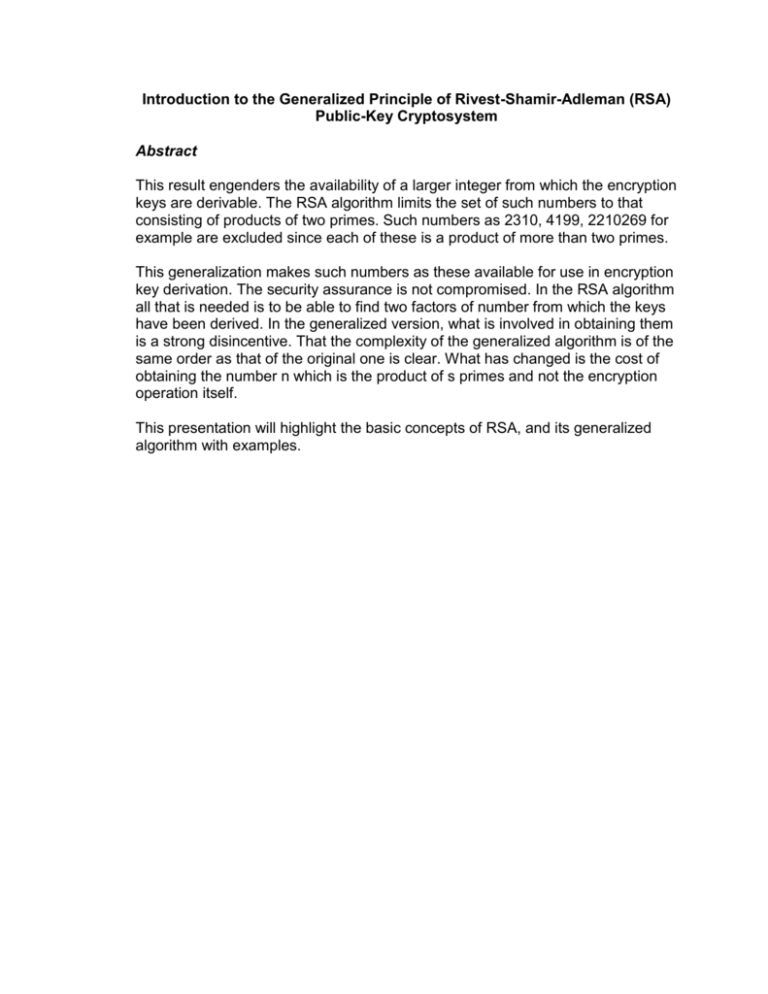
Introduction to the Generalized Principle of Rivest-Shamir-Adleman (RSA) Public-Key Cryptosystem Abstract This result engenders the availability of a larger integer from which the encryption keys are derivable. The RSA algorithm limits the set of such numbers to that consisting of products of two primes. Such numbers as 2310, 4199, 2210269 for example are excluded since each of these is a product of more than two primes. This generalization makes such numbers as these available for use in encryption key derivation. The security assurance is not compromised. In the RSA algorithm all that is needed is to be able to find two factors of number from which the keys have been derived. In the generalized version, what is involved in obtaining them is a strong disincentive. That the complexity of the generalized algorithm is of the same order as that of the original one is clear. What has changed is the cost of obtaining the number n which is the product of s primes and not the encryption operation itself. This presentation will highlight the basic concepts of RSA, and its generalized algorithm with examples.
